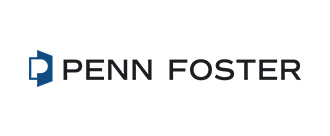If you've got great organizational skills and are good with numbers, consider a Payroll Clerk Career Diploma from Penn Foster. Keep reading to learn more.
<h2 id="section---FrequentlyAskedQuestions">Frequently Asked Questions</h2>
<h3 id="section---WhatKindOfProgramIsIt">What Kind of Program Is It?</h3>
<p>Penn Foster's online Payroll Clerk career diploma is designed to teach you how to work as an entry-level payroll clerk in a variety of industries. Courses in the program cover essential financial topics and administrative skills. You'll have the opportunity to learn about how the payroll system works in a professional setting, including the types of payroll operations (such as employee self-serve), how to prepare financial reports and tax documents, and how to enter, organize, and manage confidential employee data. By the end of the program, you could be able to sit for the National Bookkeepers Association (NBA) Payroll Certification Exam.
</p>
<h3 id="section---WhatAreThePrerequisites">What Are the Prerequisites?</h3>
<p>To enroll in the payroll clerk career diploma, you'll need to be at least 17 years old with a high school diploma or equivalent. Since the program is online, you'll need access to a computer and high-speed internet.
</p>
<h3 id="section---WhatAreTheCourseRequirements">What Are the Course Requirements?</h3>
<p>The payroll clerk program consists of 4 courses that total 127 hours of instruction, as well as 10 exams and one graded project, with the opportunity to earn 13 Continuing Education Units (CEUs). The program is self-paced but it can take from one to two months to complete.
</p>
<p />
<table border="1"><tr><th>Course Code</th><th>Course Title</th></tr>
<tr><td>SYP102</td><td>Starting Your Program</td></tr>
<tr><td>PCL001</td><td>Introduction to Payroll and Employees</td></tr>
<tr><td>PCL002</td><td>Deductions and Payments</td></tr>
<tr><td>PCL003</td><td>Payroll Accounting and Controls</td></tr>
</table><h3 id="section---WhatCouldIDoAfterIGraduate">What Could I Do After I Graduate?</h3>
<h4 id="section---CareerOpportunities">Career Opportunities</h4>
<p>After completing the program, you could pursue a job as a payroll and timekeeping clerk; it is important to note that payroll clerks aren't the same as bookkeepers, who typically have more training and job duties, which can sometimes include payroll. Payroll and timekeeping clerks keep track of employee payrolls and hours they've worked. They are in charge of ensuring employees get paid on time and for the appropriate amount of hours, and they compile financial data to ensure no errors are made. As a payroll clerk, you could earn certification from the National Bookkeeping Association.
</p>
<h4 id="section---AdvancedDegrees">Advanced Degrees</h4>
<p>You could also pursue an associate's degree related to payroll clerking, such as finance, accounting, or economics. Through these degrees, you could learn new skills that could help you get a promotion, a new job, or take on more responsibilities in your current job. An associate degree could potentially lead to new certifications, which can help job prospects as well.
</p>
<ul><li>Associate of Arts in Economics
</li><li>Associate of Applied Business in Accounting
</li><li>Associate of Business Administration in Finance</li></ul>


.svg)


